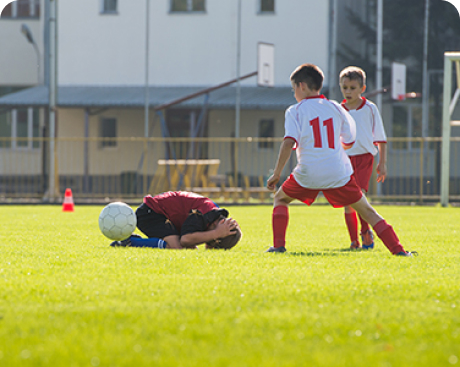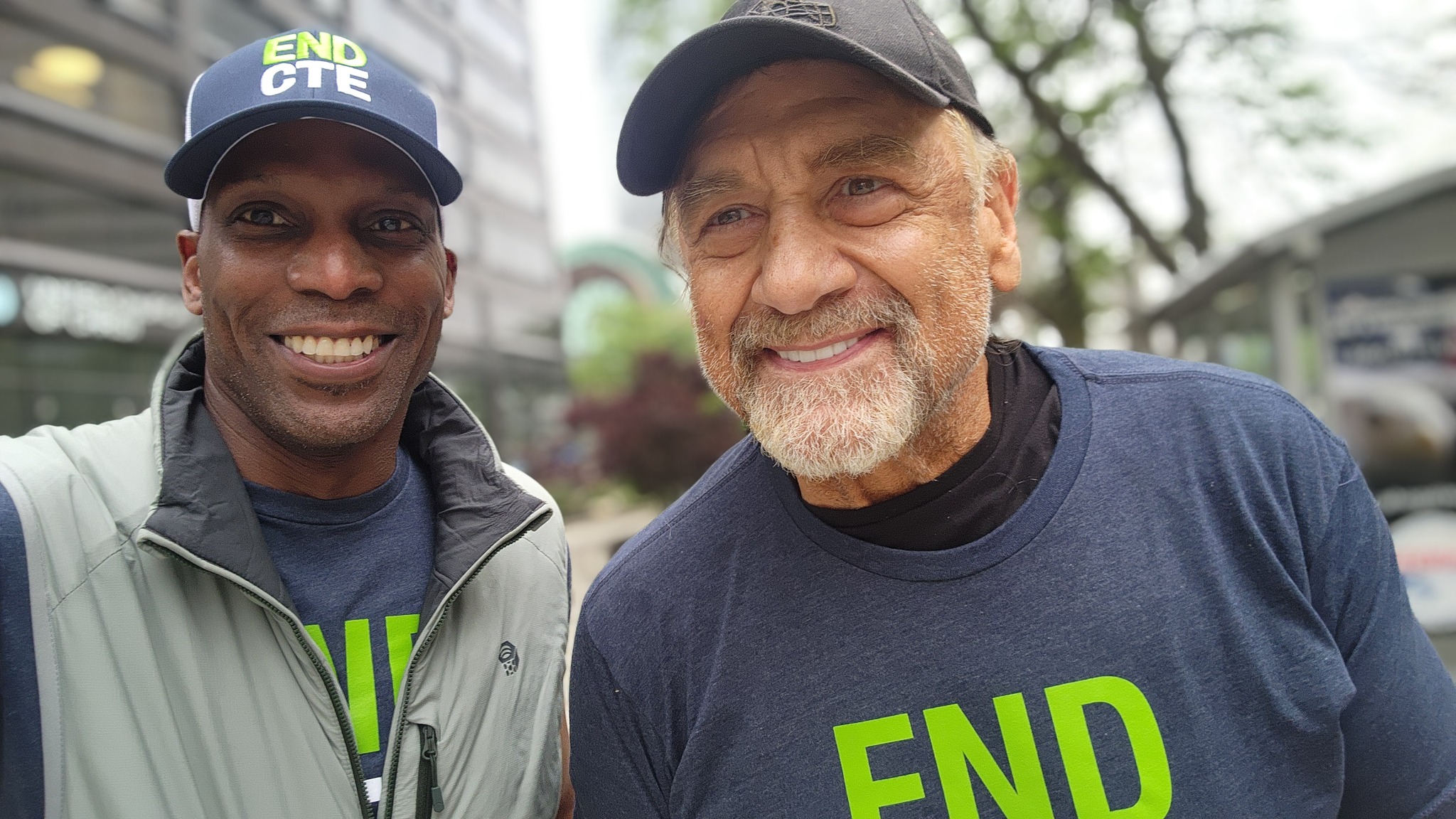Former Cornell University gymnasts Courtney Spitzer and Lauren Wong each experienced several concussions in their athletic careers and have battled Post-Concussion Syndrome (PCS). Their trials and tribulations with PCS inspired them to launch their own 5K to support CLF. The Resilient Minds 5K was a virtual race on March 20, 2021.
In this Inspiring Story, hear from Spitzer and Wong about their battles with PCS, how they found hope and healing in their recoveries, and why they started the 5K.
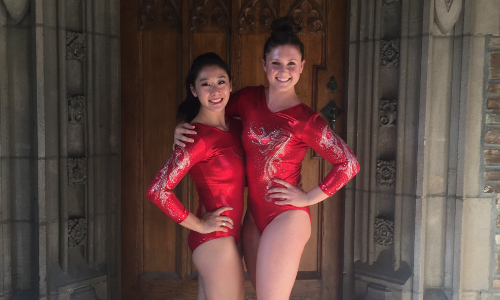
Posted: March 16, 2021
Courtney Spitzer’s story
Gymnastics became increasingly more difficult on my body as I grew older. By my 20s, many skills felt different, including my Jaeger—a skill on the uneven bars in which a gymnast starts in a handstand, swings forward, releases the bar, flips, and catches it again. If she misses, it’s a 10-foot fall to her stomach. By my senior year of college, I repeatedly fell off the bar multiple times a day, whiplashing my neck with each impact.
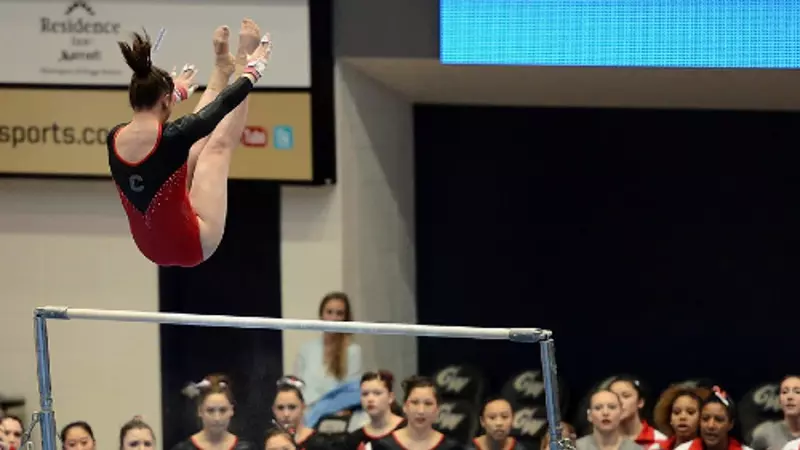
By November 2017, I was not feeling right. I had sustained two fairly serious concussions the previous year, so I was familiar with the symptoms. This experience was similar, but I remembered no specific impact, and neither I, nor my doctor, attributed this to a brain injury. For the next five months, I was sent from one physician to another as my extreme fatigue, headache, and nausea persisted, interspersed with confusing symptoms like low blood pressure and GI issues. No one could pinpoint the problem, until one day, my doctor, fresh from new training on concussion treatment, walked me through a series of tests which I failed miserably. I was diagnosed with Post-Concussion Syndrome (PCS) and referred to vision and vestibular therapy. At this point, there were only two months left in the school year, and I had missed the entirety of my 20th, and final, year of gymnastics.
Because of the understanding and flexibility of my professors, I successfully graduated from Cornell University in May and moved back to San Diego, having improved significantly, but without fully completing my treatment. Two weeks later, I was rear-ended. I reverted to my disoriented, nauseous and emotionally volatile state. Worst of all, I felt like my personality was gone. After weeks of little progress but plenty of fear, a cancellation gave me an appointment at UCSD’s concussion clinic. In addition to vestibular and vision therapy, I began a regimented return to physical activity and slowly took-up running. My balance and normal vision returned; my nausea, fatigue, and headaches decreased; and I finally felt more like myself.
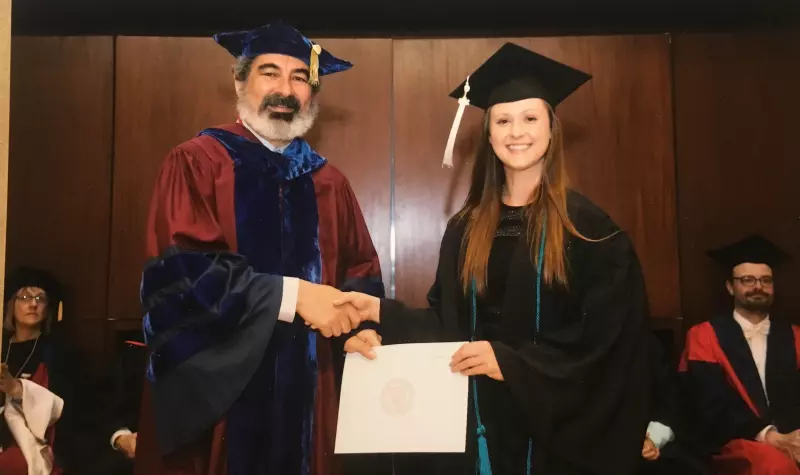
When I was given an opportunity to work under a researcher at Harvard Medical School a few months later, I moved to Boston. My proximity to medicine and history of concussions influenced my decision to pursue a medical degree, so I enrolled in night classes and began studying for the MCAT. This overexerted my brain, and my fatigue returned, my headaches increased, and I felt my functioning slipping. I was referred to the concussion clinic at BU, and again, started vestibular therapy, a regimented exercise routine, osteopathic manipulation to help with neck pain, and acupuncture to relieve sharp pains emanating into the base of my skull.
Since this final visit to BU in 2019, I now feel like my normal self. I usually live symptom-free, but some days still experience headaches and brain fog. I’ve learned how to manage, when to take it easy, and when a run will likely relieve persistent fogginess. I understand how daunting the PCS healing process can be and the intense frustration of setbacks, but I take solace in knowing that my experiences have directed my goals. For anyone struggling with PCS, I hope you can find peace in your resilience and feel confident that one day you’ll feel like yourself again.
Lauren Wong’s story
As a senior in high school, college gymnastics seemed like an exciting next step in my athletic career. I was ready to take on the NCAA and planned to compete all four years as a consistent member in the Cornell University lineup. However, that all changed in January 2015 during my freshman year. I was at practice when I was on the floor performing a round-off back handspring double pike when I over-rotated the landing and smacked the back of my head on the floor as I rolled backwards. Initially, I felt fine and was adamant that I could continue with practice despite our trainer’s concerns. As the day progressed, I started to feel more and more out of it. My balance felt off, I was seeing double, and I was having major difficulty concentrating. After another hour or so, I was crying for no reason and complaining of head pain and the bright lights aggravating me. Another few hours passed and I wasn’t able to walk without assistance. My memory is still extremely fuzzy on the rest of the day’s events. I was out for the rest of the season and had to drop all but one of my classes. Recovery was extremely slow, and I didn’t start to feel like myself again until the summer.

By fall of sophomore year, I was feeling back to my old self after months of rest and recovery. Unfortunately, I suffered three more concussions throughout my collegiate career; one each academic year. Although each concussion decreased in severity, my Post-Concussion Syndrome (PCS) worsened, and after my third concussion, I began having visual problems and could not see properly. I started vision therapy and received special glasses to wear while studying. However, I wasn’t able to continue treatment due to travel difficulties and balancing therapy while still taking a full course of classes and gymnastics practice.
In 2018, I graduated from Cornell University and returned home to Los Angeles, California. I was still suffering from constant headaches, fatigue, and adverse reactions to blinking lights so I sought out treatment again. I figured being in LA with so many great universities and sports teams in the area it would be easy to find a doctor who understood my symptoms and could provide me with the appropriate treatment. Unfortunately, I was wrong. I went to my primary care physician and even a concussion clinic from a well-renowned university hospital. Both doctors told me that it was impossible for me to still have symptoms from my concussions and that I simply suffered from migraines. They gave me various medications and sent me home. These medications obviously were ineffective, and I was feeling utterly defeated; crazy that I was still having symptoms, frustrated that no one believed what I was saying, and hopeless that I would ever feel relief from my symptoms.

Fortunately, I have a great support system of friends and family that believe my symptoms and that I can get better. Because of their support and by hearing other’s concussion stories, I am motivated again to start finding treatment for my PCS. I currently still suffer from many symptoms but am searching for new treatments available near me and am hopeful that I will return to my normal self! I have learned it’s never too late to start looking for treatment and you are not alone. There is an amazing community here that believes in you and supports you so don’t give up and keep on moving forward one day at a time!
Why we created the Resilient Minds 5K
Our concussion histories led us to create the Resilient Minds 5K for the Concussion Legacy Foundation, as we believe in their mission to support vital research, connect patients with necessary care, and highlight individuals’ stories to provide hope for those currently experiencing this debilitating injury.
Please join us for the Resilient Minds 5K or support us by donating to CLF!

